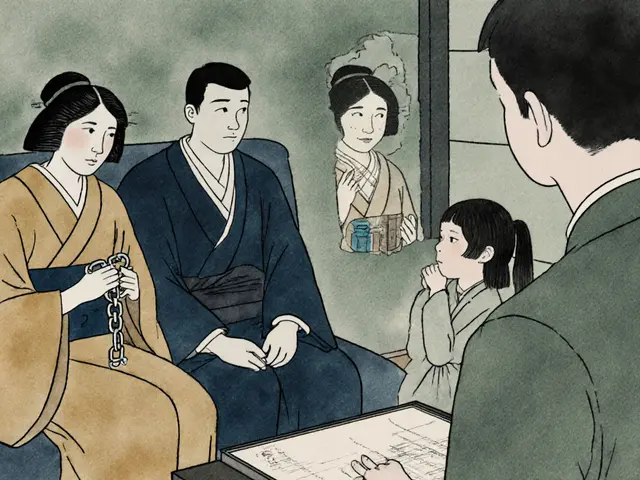Vztah s poruchou osobnosti: Jak terapie pomáhá žít lépe
When you're in a relationship with someone who has a porucha osobnosti, stálý vzor chování, který způsobuje trvalé potíže ve vztazích a emocionální regulaci. Also known as personality disorder, it doesn't mean the person is broken — it means their brain learned to survive in ways that now make connection hard. Many people think it's about being "difficult" or "dramatic," but it's deeper. It's about an inner world that feels unsafe, and the person fights to stay afloat — often by pushing others away, clinging too tight, or shutting down completely. You might feel like you're walking on eggshells, never knowing when the next explosion or withdrawal will come. And you're not alone — in Czechia, over 60% of people in long-term therapy for addiction or trauma have a partner or family member with an undiagnosed or untreated personality disorder.
That's where psychoterapie, strukturovaná podpora, která pomáhá lidem překonávat hluboké emocionální a chovatelské vzory comes in. Not to fix the other person, but to help you understand what's really going on — and how to protect your own mental health while still being there. One of the most effective methods is DBT terapie, dovednostní terapie, která učí zvládat emoce, tolerovat stres a budovat zdravé vztahy. It’s not magic. It’s practice. Learning to name your feelings before reacting. Setting boundaries without guilt. Recognizing when someone’s behavior is about their pain, not your worth. And knowing when to step back — not as punishment, but as self-care.
What you’ll find in these articles isn’t theory. It’s what real people in Czechia are using: how to stop the cycle of blame and shame, how to talk when emotions are running high, and how to stop feeling like you’re the problem. You’ll read about emoční regulace, schopnost udržet klid i v krizi, aniž byste se ztratili nebo zničili vztah — not as a skill for the calm, but for those who’ve been screaming inside for years. These posts don’t promise miracles. They offer tools: how to spot triggers, how to respond without escalating, how to find support without burning out. And if you’re the one with the diagnosis? You’ll find paths to self-acceptance, not perfection. This isn’t about changing who you are. It’s about learning how to live with yourself — and with others — without constant war.
Zapojení partnera do terapie poruch osobnosti může výrazně zlepšit vztah - ale jen pokud je správně provedeno. Zjistěte, kdy to pomáhá, kdy to škodí a jak se připravit.
Zobrazit detaily

